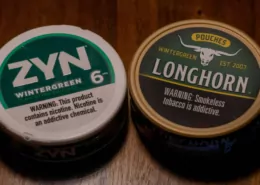R.J. Reynolds Seeks Ban on Disposable Vape Imports
Tobacco industry titan R.J. Reynolds has opened a new front in its escalating battle against disposable vaping products. Reynolds filed a formal complaint with the U.S. International Trade Commission (ITC) seeking a ban on imports of leading disposable vape brands that have eaten into its market share.
This aggressive move represents the company’s latest and most severe effort yet to cripple the upstart disposable vape brands that threaten Reynolds’ bottom line. However, if successful, it could significantly restrict adult access to flavored nicotine vaping products that many have come to rely on.
What Does Reynolds Want?
In its complaint to the ITC, Reynolds petitions the agency to:
- Launch a formal investigation into the import practices of disposable vape manufacturers, distributors, and retailers
- Ultimately issue an exclusion order to prohibit any further imports of the “accused products” into the United States
- Impose a permanent cease and desist order barring the companies named in the complaint from importing, distributing, or selling the disposable vapes in question
This severe proposed remedy aims to cut off disposable vape supplies at the source by halting all imports of these competitive products. Reynolds hopes to choke out the brands circumventing customs laws and regulations in its view. However, many of the targeted companies maintain their practices adhere to legal protocols.
Targets Major Disposable Brands
Reynolds’ complaint focuses on key manufacturers, distributors, and sellers behind six leading disposable vape brands:
The complaint also names major vape distribution and retail companies like Price Point NY, Flawless Vape, Vape Sourcing, and Element Vape as respondents violating import laws.
By targeting the supply chain from manufacturing through sales, Reynolds aims to eliminate access to these brands surging in popularity and undercutting Reynolds’ market power.
What Violations Does Reynolds Allege?
In its filing, Reynolds claims these disposable vape companies are illegally importing products in contravention of Section 337 of the Tariff Act of 1930.
Specifically, it alleges violations involving:
- False or misleading advertising about government approval status
- Failure to abide by federal registration and reporting requirements
- Non-compliance with customs and border regulations
- Violating the Prevent All Cigarette Trafficking (PACT) Act after it was expanded to include vaping in 2020
However, the vape brands implicated argue these allegations misrepresent their adherence to laws and regulations governing their products. The ITC will now need to investigate the merits of Reynolds’ claims.
Why Is Reynolds Threatened By Disposables?
As the owner of Vuse, the top-selling nicotine vape brand in U.S. convenience stores, Reynolds has seen its market position eroded by the meteoric rise of disposable vape competitors like Puff Bar and Elf Bar. These convenient, flavorful, and aggressively priced disposables appeal to consumers seeking an alternative to Reynolds’ products.
Eliminating access to these imports would clear the field for Reynolds to recapture lost market share and rebuild dominance. The company argues it has the manufacturing capability and inventory to quickly replace any supply gap from banned disposable vapes.
Prior Failed Attempts to Squash Disposables
Reynolds and its parent company British American Tobacco (BAT) have engaged in various attempts this year to quash disposables eating into their profits, including:
- Petitioning the FDA to target disposables in enforcement actions
- Spreading misinformation linking disposables to fentanyl
- Pressuring UK regulators to ban certain disposable brands
- Supporting U.S. legislation to increase FDA enforcement power over disposables
- Funding advocacy groups running anti-disposable misinformation campaigns
These efforts failed to halt disposables’ popularity, leading Reynolds to escalate to this ITC import ban request – its most aggressive action yet reflective of the threat disposables pose to Reynolds’ bottom line.
Potential Public Health Fallout if Bans Take Effect
If the ITC grants Reynolds’ request, the public health impact could be profound. Eliminating access to flavored disposable vapes risks shifting purchasing to illicit underground markets with no quality or safety oversight.
Rather than curbing nicotine use overall, Reynolds’ actions could simply cut off legal regulated access while bolstering dangerous illicit markets. Lawmakers and health agencies will need to weigh these potential unintended consequences.
At best, Reynolds may regain some revenue but at the detriment of adult consumers who will lose legal access to products many rely on. This loss underscores why policy decisions cannot be left in the hands of corporations fixated on profits over public welfare.
- Is Vaping While Driving Illegal in New Mexico? - June 28, 2025
- Vaping Laws in New Mexico: Guide of Age, Flavors, Tax & Rules - June 28, 2025
- Vaping Laws in New Hampshire: A Comprehensive Guide for You - June 27, 2025









